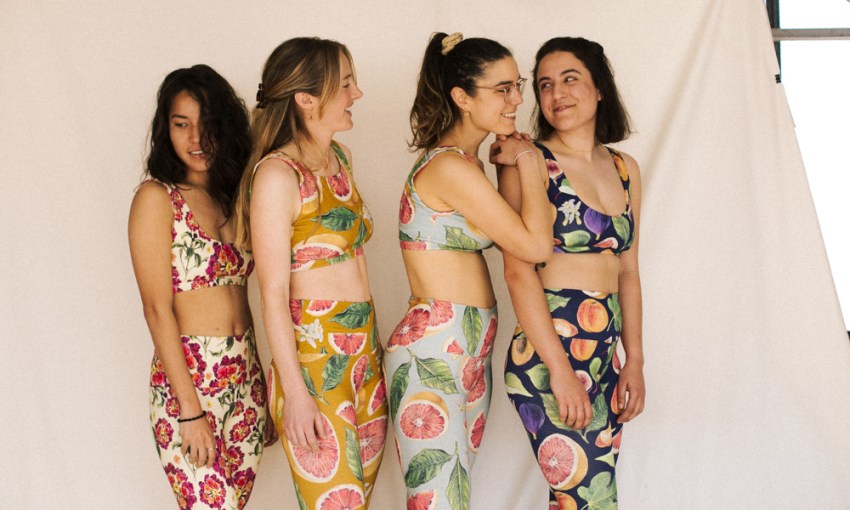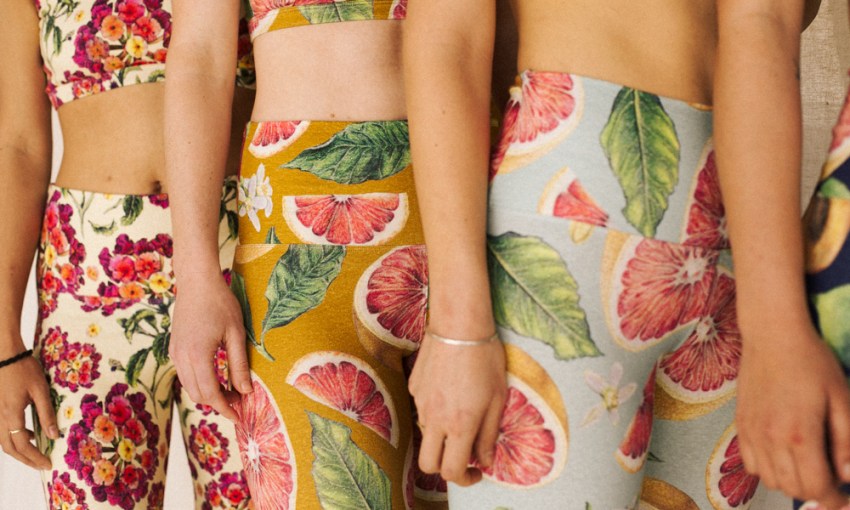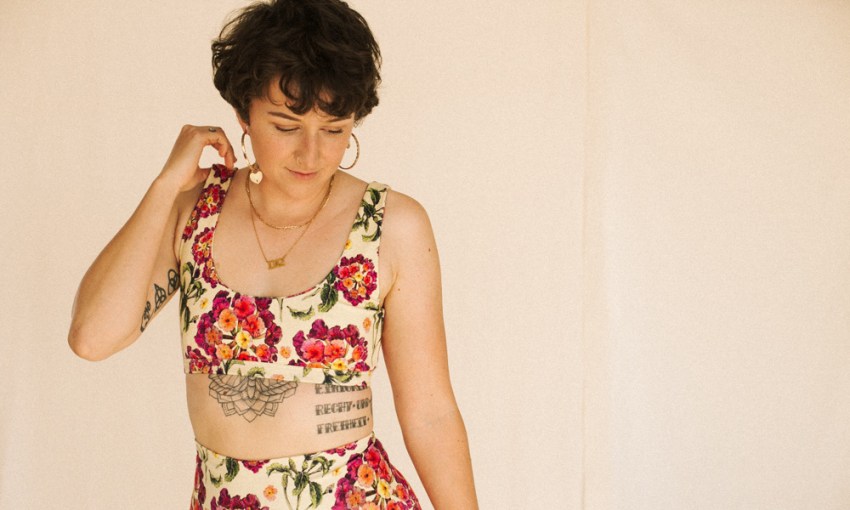Adelaide ecowear label Solomon Street has released a new environmentally conscious activewear range this year, with a swimwear line set to be released soon.
Solomon Street’s eco-activewear drop is here
The pandemic struck at a forgiving moment in the history of Adelaide ecowear brand Solomon Street.
The business had sold out of its current line, and founder Lauren Crago was deep into a research and development phase for a new line of activewear, which was released in early September.
By this time, the spectre of COVID, at least locally, was beginning to seem a manageable obstacle, and the public demonstrated a comfort in non-essential spending.
Upon release, Lauren saw a keen response to Solomon Street’s new range, in line with pandemic-influenced online shopping trends.
“People were waiting and very happy to jump on board quickly,” she says.
The new activewear line is made from a hemp and organic cotton blend fabric and features the illustrations (drawn by Lauren) the brand has become known for.
A deep sense of conscientiousness is sewn into each garment.
The items are designed to accommodate a broad range of women’s bodies, both through fabric selection and shape.
“One of the things that was really important, learning over the last few years, is that everyone’s bodies are so different,” Lauren says.
“Especially when you’re dealing with women’s bodies… the style and design of the top makes a huge difference. So that’s why I opted for a crop-top style.
“Having the stretchy jersey fabric means that if you’re smaller busted it’ll form to your shape, but it you’re bigger busted as well, there’s enough room.”
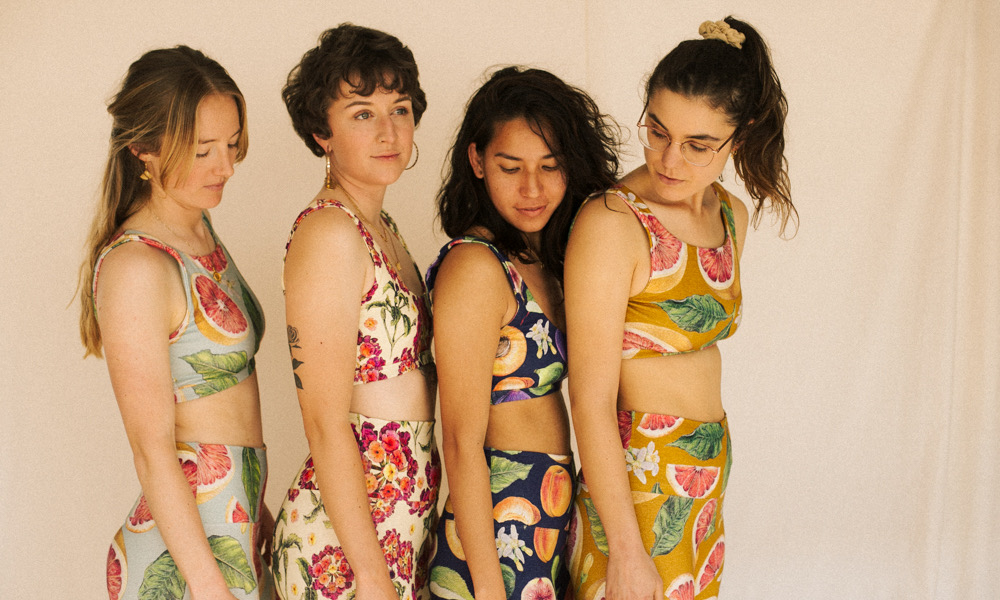
The range is designed to be as applicable to volleyball (Lauren’s sport of choice) as they are to yoga, or to just lazing around the house or going for coffee.
“Obviously, being activewear, [it has] to fit really well, to be comfortable… but then also [be] strong enough and supportive enough,” Lauren says.
“The hemp fabric really helped with that, because it was such a beautiful fabric, but it’s really heavy weight, so it has a lot of strength to it.”
The cut of the activewear was designed in collaboration with the manufacturer of the garments, Prospect-based Jem Designs, which specialises in the stretch fabrics necessary for activewear.
“That was something I needed to go through, because not having a fashion background, it’s been a heap of learning in that aspect,” Lauren says
“I’m able to go in there, meet with the manager there, and she does all the pattern-making and everything. And often I’ll take in other pieces that I’ve got myself, and I’ll put them on, we’ll pin it and change it around, so they’ve been really helpful with that.”
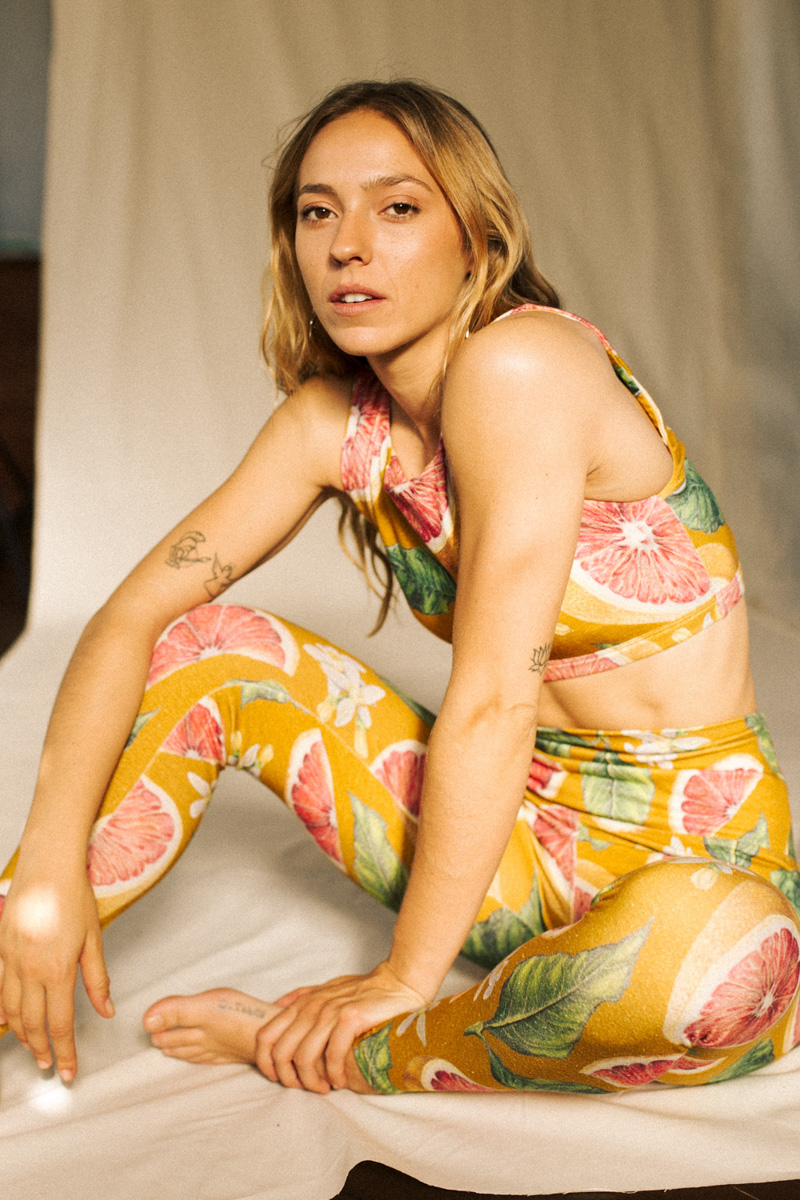
Lauren’s choice of the hemp and organic cotton blend fabric came as the result of much consternation over what is the most environmentally conscientious choice for constructing activewear.
Environmentalism is important to Lauren, and she’s tried to be as transparent as possible in her choices and in her own process of learning while establishing her brand.
The fashion industry’s environmental harm is multifaceted, so making positive decisions in the manufacturing process is not always easy.
Lauren found this in choosing the fabric for her latest line, which, in addition to activewear, will soon incorporate swimwear and underwear.
Fabrics made from recycled plastic bottles are in vogue in the global fashion industry, which is a good thing, Lauren says. But she didn’t feel comfortable associating Solomon Street with the potential legacy microplastics would leave the environment.
“There’s such a big industry for the recycled plastics at the moment. It’s much more straightforward, much cheaper to manufacture,” Lauren says.
“The day that I was about to put in my order for the plastic bottles, I went down that whole road and I thought, ‘I can’t do this. I don’t want to. I know that it’s not what I want to do.’
“I think because I had that moment, getting to this point now with the hemp product, and I’m so proud of the product I’ve created, it just makes it that much more special to have done it, because I know that it wasn’t the easy choice.”
The hemp option, of course, has its own downsides. The fabric is five per cent elastane – the only fibre used in Solomon Street’s current range that is not plant-based, but which is necessary for the utility of the fabric as activewear.
“There’s currently no alternative in the entire world,” Lauren says.
“And elastane is in most things. It’s in most jeans, most tops. I’m really interested at the moment in looking for an alternative for that.
“There are lots [of potential alternatives] in production or development. I’ve been in contact with a few different ones, but the challenge with that is, for small businesses like mine, is you have to purchase hundreds of thousands of metres of yarn.
“But [I’m] looking at working with a few other brands in Australia that are working in the same space, working something out.”
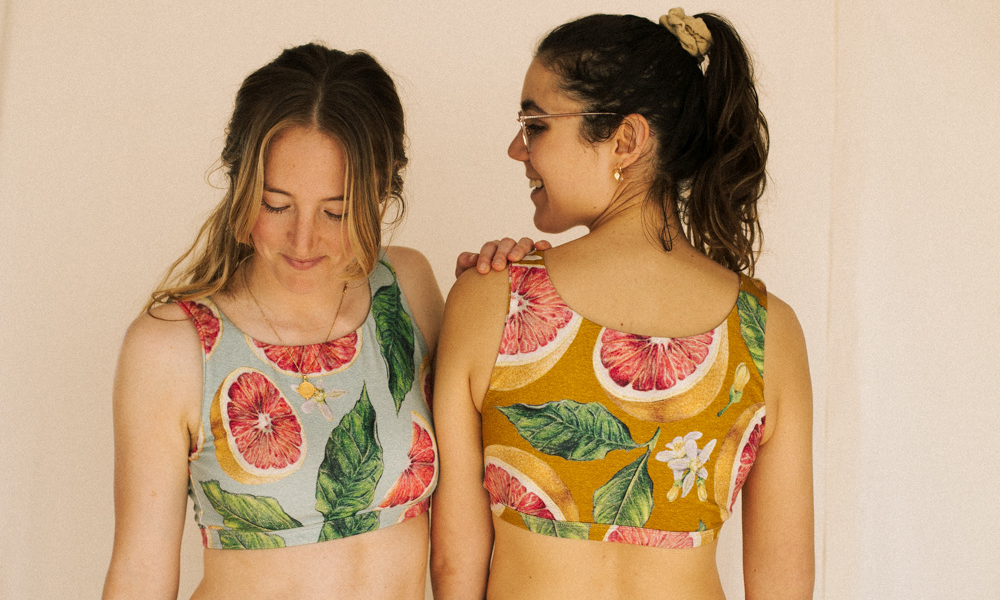
A lot of Lauren’s time within the Solomon Street business is spent researching, and it’s important to her to be sharing this process with the community she’s built around the brand.
“The information about [Solomon Street’s environmental impact] is there if people are interested,” Lauren says.
“I’ve tried to create a few icons that are really simple representations about all of that information and writing, so people, if they’re just in it for the prints, or they like the product and have not started their sustainability journey yet, they can see at the core why the products are what they are.”
Prior to the September release of Solomon Street’s latest activewear range, the brand’s clothing was only available in small, limited bursts.
The 2020 range will be Solomon Street’s first line of clothing made available year-round, making it easier for Adelaide’s eco-conscious fashion set to support local, ethical and sustainable in a single purchase.
Browse Solomon Street’s ecowear line here, and keep an eye out on Facebook and Instagram for updates on this month’s impending swimwear drop.



